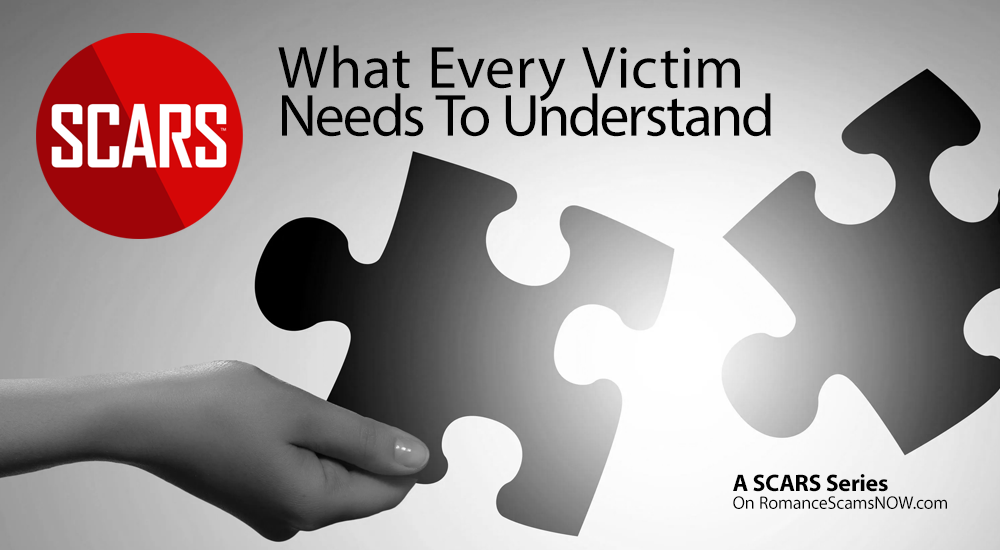Telling Your Story Is Hard
But It Is Hard For A Reason, And By Telling Your Story Over And Over It Will Get Easier
Trauma, shame, guilt, and self-blame play big roles in why telling your story is hard. But it is also your traumatic memories that when you revisit them cause your body to relive the trauma.
BUT YOU CAN STEAL THEIR POWER!
It Is So Important For You To Be Telling Your Story
It can be important for traumatized victims of scams to tell their stories for several reasons, but not just once and in just one way. The objective in telling your story can be many, but at the very minimum is to help you steal away the pain that your story causes you!
Here are some of the reasons why this is important:
- Emotional Healing: Telling your story can be a cathartic experience for many victims, allowing them to process and release the emotions and trauma associated with the experience. Speaking about what happened can provide a sense of validation and relief, helping scam victims to feel heard and understood.
- Awareness and Prevention: By sharing their experiences, victims can raise awareness about these scams (especially with family and friends) and potentially prevent others from falling victim to them. Scammers often use similar tactics and techniques, and by sharing these stories, victims can help others recognize warning signs and avoid similar situations.
- Holding Scammers Accountable: Victims can also help hold scammers accountable by reporting their experiences to the appropriate law enforcement authorities. Reporting scams can lead to investigations and potentially lead to the arrest and prosecution of scammers, preventing them from continuing to victimize others. They can also lead to the recovery of your money!
- Support Networks: Telling your story can also help you and other victims connect with support networks, including other victims of the same scam, advocacy groups such as SCARS, and mental health professionals. These connections can provide much-needed emotional support and guidance as victims navigate the aftermath of the scam.
Why Does It Feel So Bad?
The retelling of their story can make scam victims feel like they are reliving their trauma all over again.
What is the benefit of telling your story? How does it help with residual denial, guilt, and shame?
Telling your story can make it feel like you are reliving the trauma all over again. While your mind knows, your body does not. When scam victims retell their stories they are revisiting painful memories and emotions associated with the experience and the body feels like it is happening all over again. Victims may feel anxious, scared, or overwhelmed as they recount the details of the scam, which can trigger the same fight-or-flight response they experienced during the initial incident.
Despite The Potential Discomfort, There Are Real Benefits To Telling Your Story
Firstly, telling your story can help with residual denial, guilt, and shame by providing an opportunity to process the experience and work through any negative feelings that may be lingering. Victims may feel guilty or ashamed for falling for the scam or for not realizing sooner that it was a scam. By telling their story, they can receive validation and support from others who have gone through similar experiences, which can help alleviate those feelings of guilt and shame.
Retelling the story can also help victims gain a sense of control over the situation. Scams can make victims feel powerless and vulnerable, but by speaking out and sharing their stories, victims can reclaim some of that power and take steps toward healing and recovery.
Finally, retelling the story can raise awareness about the scam and help prevent others from falling victim to it. Victims may feel a sense of purpose and accomplishment by sharing their stories and potentially helping others avoid a similar fate.
Retelling the story can be a difficult but necessary step toward healing and recovery for almost all scam victims. It provides an opportunity to process emotions, gain a sense of control, and potentially help others.
When Scam Victims Begin Telling Your Story …
When scam victims retell the difficult aspects of their stories, it helps them process the trauma or grief.
How does it help them to process traumatic memories and feel like these memories have less control over them with each retelling?
This is actually simple, but the psychology can be complex.
When scam victims retell the difficult aspects of their stories, it can help them process the trauma or grief in several ways:
- It can help victims make sense of what happened to them. Telling your story allows you to organize your thoughts and emotions surrounding the experience, making it easier to process and understand what they went through.
- It can help victims acknowledge and accept their feelings. By sharing their story, victims can express their emotions in a safe and supportive environment, which can help them process their feelings and come to terms with the impact of the scam on their lives.
- It can help victims develop a sense of control over the situation. When retelling their story, victims can assert their agency and gain a sense of empowerment, which can help them feel less helpless and more in control of their lives.
- It can help victims desensitize to the traumatic memories. Retelling the story repeatedly can help victims become desensitized to the difficult memories and emotions associated with the experience, which can reduce the emotional intensity of the memories over time.
- It can help victims develop a new narrative. Retelling the story can help victims reinterpret the events and develop a new narrative that emphasizes their strength and resilience in the face of adversity.
By telling your story, most scam victims can process traumatic memories and gain a sense of control over the situation. Over time, the memories may become less painful and less controlling, allowing victims to move forward with their lives in a more positive and empowered way. It’s important for victims to seek support from mental health professionals and advocacy groups to facilitate the healing and recovery process.
Anger & Resentment
When traumatized scam victims retell painful aspects of their story, it can be normal for them to be angry or resent the person asking them to share the details of their traumatic experience. They often lash out at the people trying to help them by asking about those terribly painful details.
It is normal for traumatized scam victims to feel angry or resentful towards the person asking them to share the details of their traumatic experience. Victims may feel that they are being forced to relive painful memories or that they are being put in a vulnerable position by discussing their trauma with others. They may also feel a sense of frustration or hopelessness if they don’t feel that others can truly understand the impact that the scam had on their lives.
In some cases, victims may lash out at the people trying to help them who are asking about those painful details. This is because retelling the story can be an emotionally intense and overwhelming experience, and victims may feel triggered or overwhelmed by the process. It’s important for those working with scam victims to be sensitive to their emotions and to provide a safe and supportive environment for them to share their experiences.
It’s also important to note that each victim’s response to retelling their story will be unique, and some may find it more difficult than others.
Telling Your Story Helps To Heal Your Mind
How does facing traumatic memories help the mind to recover from the original traumatic experience? By stealing the power of those memories!
Facing traumatic memories can help the mind to recover from the original traumatic experience by allowing the person to process the event and integrate it into their life story in a way that is less distressing. Traumatic memories can be stored in the brain in a fragmented, disorganized way that makes them difficult to process and integrate into existing memory networks. By facing the memories (even if it is difficult) and actively processing them, individuals can begin to make sense of what happened and create a more coherent narrative of the event.
Telling your story of the traumatic experience can also help to desensitize individuals to the memories, reducing their emotional intensity and making them less distressing over time. This can help to alleviate symptoms of anxiety, depression, and post-traumatic stress disorder (PTSD) that may be associated with the trauma.
Facing traumatic memories can also help scam victims to regain a sense of control over the event. When someone experiences trauma, they may feel helpless or powerless in the face of the overwhelming experience. By actively engaging with the memory and taking steps to process it, individuals can regain a sense of agency and empowerment, which can contribute to a greater sense of resilience and well-being.
It’s important to note that facing traumatic memories can be a difficult and challenging process, and it’s not something that should be undertaken alone. You need to be in a safe place – a professional support group such as those provided by SCARS or a mental health professional who specializes in trauma can provide support, guidance, and evidence-based interventions to help individuals navigate the process of facing traumatic memories and recovering from the original traumatic experience.
Getting Support
It’s important for victims to seek support and guidance from mental health professionals and advocacy groups as they navigate the aftermath of the scam, such as SCARS. Mental health professionals and advocates who work with scam victims are trained to provide support and guidance in a compassionate and non-judgmental manner and can help victims work through any negative emotions or reactions that may arise during the retelling process.
If you would like to sign up for a SCARS scam victim support group please go to support.AgainstScams.org
Telling Your Story To Family & Friends

-/ 30 /-
What do you think about this?
Please share your thoughts in a comment below!
Do You Need Support?
Get It Now!
SCARS provides the leading Support & Recovery program for relationship scam victims – completely FREE!
Our managed peer support groups allow victims to talk to other survivors and recover in the most experienced environment possible, for as long as they need. Recovery takes as long as it takes – we put no limits on our support!
SCARS is the most trusted support & education provider in the world. Our team is certified in trauma-informed care, grief counseling, and so much more!
To apply to join our groups visit support.AgainstScams.org
We also offer separate support groups for family & friends too.
Become a
SCARS STAR™ Member
SCARS offers memberships in our STAR program, which includes many benefits for a very low annual membership fee!
SCARS STAR Membership benefits include:
- FREE Counseling or Therapy Benefit from our partner BetterHelp.com
- Exclusive members-only content & publications
- Discounts on SCARS Self-Help Books Save
- And more!
To learn more about the SCARS STAR Membership visit membership.AgainstScams.org
To become a SCARS STAR Member right now visit join.AgainstScams.org
To Learn More Also Look At Our Article Catalogs
Scam & Crime Types
More SCARS
- ScamsNOW Magazine – ScamsNOW.com
- ContraEstafas.org
- ScammerPhotos.com
- AnyScam.com – reporting
- AgainstScams.org – SCARS Corporate Website
- SCARS YouTube Video Channel













Leave A Comment